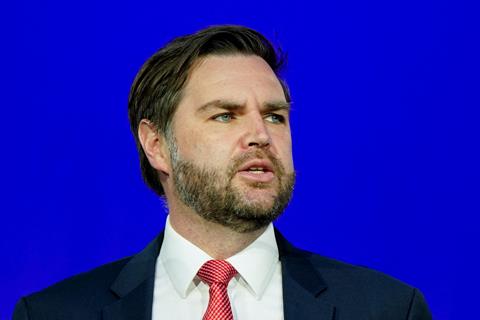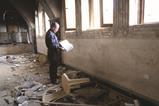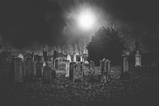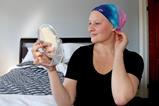The once ‘hillbilly’ evangelical is now a powerful Catholic. Heather Tomlinson explores the changing faith of the Vice President of the United States

Whether US Vice President JD Vance is perceived as a hero or a villain depends which side of the culture wars the observer sits.
Either way, his confident assertions of a conservative Christian perspective are of a different nature to his more diplomatic predecessor Mike Pence, and are closely tied to his dramatic changes he has personally experienced in social status, political ideology and religious belief.
For those who see him as a hero, he is one of the few people in power who have challenged the treatment of Christians for expressing their views in the UK, explicitly citing the case of Adam Smith-Connor who was prosecuted for standing outside an abortion clinic for just silently praying.
For those who see him as a villain, his alignment with President Donald Trump is enough to condemn him, along with his conservative opinions on abortion and immigration.
Yet it wasn’t too long ago that Vance was not even involved in high-profile politics – he first ran for senator in 2022, and even described himself as a “never Trump guy” in 2016. He came to public prominence that year through his moving and powerful memoir, Hillbilly Elegy, in which he described his difficult childhood in working class Ohio. It is full of insight into poverty in the light of later being thrust into the upper echelons of American society via university and a corporate career.
Joining the resistance
If he hadn’t become such a significant figure on one side of our bitter political divide, his extraordinary story might be more admired: from poverty and struggle in Christian Appalachia, to successful, educated atheist executive, to a conservative Catholic in one of the most powerful positions in the world. Quite something for someone who experienced six “Adverse Childhood Experiences,” a score that social scientists say gave him a higher chance of low achievement and of poor mental and physical health.
Before Vance entered politics he wrote a lot about his unusual life. He described his conversion in detail in a thoughtful article for Catholic publication The Lamp in 2020, revealingly entitled “How I joined the resistance”. His conversion sounds slow, steady, thoughtful, with no ‘Road to Damascus’ experience. There were a few moments of what could be called coincidence, which he ascribes to the touch of God. But mostly, he describes his evolution as due to ideas, rather than emotion.
As those who have read his memoir know, the person most formative to Vance was the strong-minded grandmother he called ‘Mawmaw,’ who took care of him because his own mother was in addiction. At first he adopted his grandma’s religion, which he described as “deep, but completely de-institutionalized” where “what mattered to her was Jesus” - she “loved Billy Graham” but “loathed organized religion,” he wrote in The Lamp. His family rarely attended church, yet it is clear that religion was central to their identity.
Becoming atheist
A four-year stint in the Marines including Iraq left him more “sceptical” about the liberal political ideologies he thought he had been fighting for when he signed up in 2003. He then went to university and read famed atheist authors Christopher Hitchens and Sam Harris, and adopted that label of unbelief for himself. He blames this on socialisation by his new, intellectual surroundings. “Much of my new atheism came down to a desire for social acceptance among American elites,” he said in The Lamp. “I knew how the educated tended to feel about religion: at best, provincial and stupid; at worst, evil… secularism may not have been a prerequisite to join the elites, but it sure made things easier.”
Much of my new atheism came down to a desire for social acceptance among American elites
Vance sounds as though he was well-read at the time, aware of the arguments of famed Christian apologist CS Lewis, but equally confident he could disarm them. It would be the softer and more cerebral rebuttal of Anglican Oxford professor Basil Mitchell in response to atheist philosopher Anthony Flew in a debate that would powerfully impress Vance with words of nuance and a faith willing to doubt. “I have thought about them constantly since,” he writes.
He realised that his drive to succeed would not help him to achieve what was most important to him, to be a good husband and father. He perceived the need to learn self-sacrifice and “master my temper”. He began to engage with St Augustine, venture capitalist Peter Thiel, and Catholic philosopher René Girard.
The appeal of Christianity
There is a strong theme of political disenchantment in his story that perhaps explains his eventual alignment with a political figure who is so outside of political norms. He describes disillusionment with the left’s diagnosis of the problems of the poor communities he knew well, but considered the right to be “heartless”. In contrast, Christianity appealed to him:
“I felt desperate for a worldview that understood our bad behaviour as simultaneously social and individual, structural and moral; that recognized that we are products of our environment; that we have a responsibility to change that environment, but that we are still moral beings with individual duties; one that could speak against rising rates of divorce and addiction, not as sanitized conclusions about their negative social externalities, but with moral outrage. And I realized, eventually, that I had already been exposed to that worldview: it was my Mamaw’s Christianity. And the name it gave for the behaviours I had seen destroy lives and communities was “sin.”” (The Lamp, 2020)
At the time of his baptism into the Catholic Church, in 2019, he told conservative Orthodox journalist Rod Dreher that his views on policy were “aligned with Catholic social teaching” (CST) and argued for a “broader vision of political economy, and the common good” in the Republican party.
For Vance to choose Catholicism was yet another step away from his hillbilly roots, and he describes questioning if Mawmaw would disapprove. But he was drawn by a connection to a much more distant past than his childhood: “a historical continuity with the Church Fathers—indeed, with Christ Himself,” he wrote in The Lamp. He says he turned away from values aligned with consumption and pleasure-seeking and towards one that valued old-fashioned values of duty and virtue.
Spiritual influence
In an article about Vance’s faith written just before the election, Slate described his positive appraisal of the “old” as an “anti-modern worldview” that is “key to understanding Vance”. The liberal publication contrasts this choice of “a church with a complex social doctrine built off the work of ancient philosophers” with “a party long dominated by anti-intellectual evangelical Christians”.
That might say more about the prejudices of the Slate author than the reality, but Vance is clearly a very different spiritual influence on Trump than televangelist Paula White, the President’s “senior adviser” on faith, and her charismatic prosperity theology. Vance prompted a furious online debate among Christians earlier this year on Thomas Aquinas’s notion of “ordo amoris”, or ‘order of loves’ after using the term in an interview on immigration, prompting an apparent rebuke from Pope Francis in a letter to US Bishops advising “meditating on the love that builds a fraternity open to all, without exception.”
Vance’s intellectual conversion is having a powerful impact on our culture. But will it widen the political divide that threatens to split the church, and our societies, in two?



































1 Reader's comment